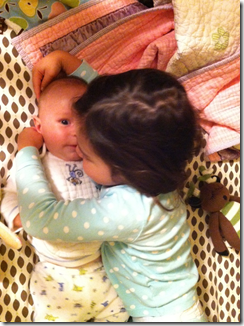Matthew Dicks's Blog, page 516
September 7, 2012
The Internet makes it a very small world
Yesterday I wrote about Erin DiMeglio, the first girl to play quarterback in a Florida high school football game. Uncertain about how I would react if my daughter asked to play football, I wrote a post parsing out some of my feelings on the subject.
Later that evening, Erin DiMeglio’s coach, Doug Gatewood, commented on the post and his wife, Bethany Gatewood, contacted me via Facebook.
An hour later Doug also contacted me via Facebook, asking to steal a line from the post for use with his football team this year.
I told him I’d be honored.
It an excellent reminder of the power of the Internet. Less than fifteen years ago, it would have been almost impossible for Doug Gatewood and I to exchange words. I would have read about Erin DiMeglio in the New York Times, wondered about how I would feel if she had been my daughter, conversed with my wife and perhaps some friends on the subject and moved on with life.
Today I am able to express my thoughts on the subject on a network connected to every other computer in the world, including Doug and Bethany Gatewood’s computer.
Presumably Erin DiMeglio’s computer as well.
Presumably as a result of a Google search or a Google Alert, Doug and his wife were able to find my post on the Internet and access social media to converse with me.
We sometimes forget how incredible this technology really is. It feels as if we have been living with the Internet forever, but not so very long ago, this type of communication would have been unimaginable.
It’s also a good lesson for me to bring back to my students. As we begin to live more and more of our lives online, we must remember how truly public our words are. While I have never been afraid of criticizing people when I disagree with their words or actions, this evening’s exchange with Doug and Bethany Gatewood serve as a reminder that the words we write can easily land in the laps of our subjects and often do.
I am not suggestions that criticism is wrong. Even harsh criticism is warranted at times. But it should be measured carefully before one sends it out into the world. For all intents and purposes, Erin DiMeglio, Doug Gatewood and Bethany Gatewood are sitting over my shoulder as a write, capable of reading my every word.
Last night Doug and Bethany Gatewood did just that, and their words in response to mine meant a great deal to me. As a writer, there is nothing better than learning that my words have meant something to a person.
The fact that Doug and Bethany play an important role in the subject of my post made it even more meaningful. One of those moments I hope to never forget.
Amazing or amazingly awful?
I’m not sure whether this man is a great father or an attention-seeking lunatic.
September 6, 2012
My little girl playing football?
Have you heard about Erin DiMeglio, the first girl to play quarterback in a Florida high school football game?
DeMeglio is the third string quarterback on a roster is filled with college prospects. “The star running back has committed to Miami, and its starting quarterback has offers from Navy and Air Force.” She apparently has a cannon for an arm and has earned the respect of her teammates because of her skill and poise on the field .
DiMeglio had proved herself to the other players during spring and summer workouts, so when she officially joined the team, it was met with a respectful shrug. She has her own changing area in the girls’ locker room, and at the seven-on-seven camp last summer, she shared a room with the cheerleading coach. Otherwise, she is one of the guys, and they are protective of her.
As a father of a three year old girl, I read this story and had two divergent thoughts:
Based upon the way I played tackle football and my frequent attempts to inflict bodily harm on my opponents, I would not want my little girl playing the game with a bunch of boys who are larger and stronger than she.
I can’t imagine the pride that a father must feel upon learning that his little girl possesses the courage and inner fortitude required to play a game normally reserved for boys.
As they two opposing thoughts waged battle in my mind, I tried to imagine what I might say if Clara ever came to me and expressed a desire to play high school football.
Presuming she had the skills to play, it would be a tough call.
While I might attempt to steer her in the direction of a sport where her competition would be fellow females, I can’t imagine stopping her from trying something that few people have ever tried before.
That’s the thing about courage: It cannot exist without risk.
If we protect our children from danger at every turn, we deny them the opportunity to be brave.
So no, I would not want my little girl playing on a boy’s football team, and yes, I would be bursting with pride if she did so.
Gumby and me in the HOV
An Oregon woman attempted to disguise a giant teddy bear as an additional human passenger in order to travel in the high occupancy vehicle lane “and now faces a $260 ticket for the stunt, Portland ABC affiliate KATU reports.”
This is nothing new.
When I moved to Connecticut in 1994, I was living east of Hartford and working on the west side of Hartford, requiring me to travel through the city on Interstate 84 every morning. The traffic was horrendous. For reasons I will never understand, back in those days I-84 went from a three-lane highway down to a single lane as it entered the city, guaranteeing a delay for anyone traveling my route.
However, the was an HOV lane that allowed motorists to bypass this insanity and pick up I-84 after it had re-expanded to three lanes in the city.
Being young, foolish, daring and impatient, I placed my five-foot tall inflatable Gumby doll on the seat beside me (a relic from my high school days) and equipped it with a tee-shirt and a baseball cap. For almost two years, I was able to use the HOV lane on a daily basis and was never stopped by the police, even as others around me were being pulled over and ticketed for driving solo.
Not the most noble thing I’ve ever done, but as my students will tell you, the thing I despise most in life is wasted time, and the only time I lose my temper is when I’m stuck in traffic.
Something had to give.
September 5, 2012
Clint Eastwood’s Imaginary Friend was really his convenient friend
I wonder if Clinton will speak to an imaginary Clint Eastwood tonight at the Democratic National Convention.
I doubt it.
I’m guessing that Clinton knows the first rule of Imaginary Friends:
Keep them to yourself. Don’t talk to them in public. (People will think you’re strange.) Don’t set a place for them at the dinner table. (People will think you’re strange.) And whatever you do, don’t talk to them on stage at the Republication National Convention. (People will think you’re really strange.)
Imaginary Friends (or foes, in this case) have their purpose. They serve as the ideal confidante: always available, always willing to lend a hand . . . and an ear. I had an imaginary friend when I was a child—his name was Johnson Johnson. He was a boy about my age, conveniently shorter and smaller than me with ice blue eyes perpetually focused in my direction. Johnson Johnson was my best friend for several years, and for a time, he may have been my only friend. When I was feeling lonely or faced with a difficult decision, it was Johnson Johnson I turned to.
I thought a lot about my imaginary friend while watching Clint Eastwood speak to his imaginary version of President Obama. It was an interesting rhetorical device—our nation’s quintessential tough guy literally talking down to an empty chair. But I wasn’t thinking of rhetoric last Thursday night. I was thinking of how similar Eastwood’s imaginary president was to the imaginary friends of millions of children across the country.
As an elementary school teacher for the past fifteen years, I’ve come across my fair share of imaginary friends. I know their world and I understand their purpose. Imaginary friends are convenient, agreeable, and above all, there when you need them.
Rather like Imaginary Obama. The empty chair to which Eastwood directed his words was remarkably agreeable. When a smirking Eastwood turned to Imaginary Obama and posed his first question about the promises that the President had made to the American people, Imaginary Obama ignored the fact that the question made no sense and had no possible answer.
And it didn’t matter in the least.
Like any good imaginary friend, Imaginary Obama did not refute Eastwood’s claims or even attempt to answer him. He just sat there: invisible, imaginary, irrefutable.
Hardly surprising.
After all, imaginary friends serve their imaginers at all times. It’s their job. They fill the gaps in a child’s life, serving roles unfilled by parents, teachers, and even real life friends. In Eastwood’s case, Imaginary Obama served as the agreeable prop that he required.
Eastwood’s first question showed his apparent lack of concern with coherence while speaking to Imaginary Obama, which is common with children and their imaginary friends. In some cases, children begin babbling to imaginary friends before they are capable of speech, but even older children with rich vocabularies develop their own special languages—languages that are full of meaning and nuance and often indiscernible to outsiders. Eastwood did his share of babbling on Thursday night as well, often straying into unintelligibility. While it may have been uncomfortable for the audience and presumably for Mitt Romney and his campaign team, Imaginary Obama didn’t seem to care one bit.
Imaginary Obama had no say over where Eastwood brought him. The real President Obama would never consider being seated off-mic to the right of Eastwood at the Republican National Convention (particularly if he was expected to answer questions), but imaginary friends are excellent companions in this regard. When I brought Johnson Johnson to school, he often had to wait in the boys room for me, regardless of the persistent bathroom smells. When I brought Johnson Johnson to the park, he was required to wait by the chain link fence rather than joining me on the swings. When we rode in the car, he was often forced to sit in the trunk. It’s nice to have a friend who is willing to accompany you at every turn, regardless of how unwelcomed he or she may feel. Johnson Johnson never complained about being my trusted sidekick, but I have to wonder if how much Imaginary Obama enjoyed the stage at the Republican National Convention. He may have preferred to wait by the fence.
Imaginary friends are convenient. And even imaginary foes have their purpose. But I have to wonder if Eastwood had wanted to debate Obama so badly, did he ever consider inviting the real President Obama as opposed to his imaginary counterpart? Something tells me that had the real President been invited to debate Clint Eastwood on the stage of the Republican National Convention, he might have accepted.
But Eastwood didn’t ask, and on Thursday night a man known in his films for toughness, grit, and unwavering courage chose to bring his imaginary friend to the party because Imaginary Obama was convenient. He was guaranteed to show up, certain to offer no rebuttal, and assured to understand every word of Eastwood’s speech, regardless of how indiscernible and crazy it seemed to the rest of us.
Eastwood also chose convenience over challenge on Thursday night. Rather than debating a man who would have likely spoken rings around him, Dirty Harry chose to chat with a chair. I’m sure that even Imaginary Obama was a little disappointed in his lack of courage.
Best race of 2012 without exception
Wouldn’t it be great if the Paralympics received the same amount of attention as the Olympics? Races like this are thrilling and inspiring beyond belief, yet so few of us will ever see something them.
I’ll be showing my students this clip today in hopes of inspiring them to do great things despite any obstacles placed before them.
I’m not afraid.
Gerascophobia is the fear of growing old.
I would be consumed with gerascophobia if I was to ever accept that I was getting older, which I would never do because I am not getting older because getting older would mean that I am also getting closer to death, which frightens me a hell of a lot more than getting older except that I refuse to accept that I will die so it doesn’t frighten me at all.
Got it?
September 4, 2012
The Open and Close Eyes Game
My daughter has informed us that her infant brother’s favorite game is The Open and Close Eyes Game.
“He’s playing it again, Daddy!” she shouts as Charlie sits in my lap, blinking.
Maybe she’s onto something. It’s true that Charlie blinks, and it’s also true that he doesn’t do much else.
Maybe she knows something we don’t.
A message I try to drill into my students every single day
Tickets prices and fatherhood are not the reasons that I see fewer movies today
TIME reports that “Last summer’s blockbuster movie season was considered a bust, with the fewest movie tickets sold at theaters since 1997. Despite recent hits such as “The Avengers” and “The Dark Knight Rises,” by the time Labor Day rolls around, the summer of 2012 will fare even worse.”
TIME attributes this loss to the rising cost of tickets. While ticket prices may play a role, the average ticket price in the US in 2012 is $8.12. In 1995 it was $4.35.
Has $4 really created a barrier to keep audiences out of the theaters?
Maybe.
I haven’t seen as many movies this year as in previous years, but there is one primary reason why my attendance is down:
A decline in the quality of the movie-going experience
Patrons using cell phones during the film and bringing babies into the theater have created an untenable movie experience for me. While I am still willing to risk these two potential distractors in order to see a movie that I am excited about, I am far less likely to risk two hours of my life on on a less appealing movie if I’m concerned about being confronted by a person texting or talking in the middle of the movie or a baby sitting next to me.
It’s that simple. These inconsiderate idiots have ruined the movie-going experience for me.
I’ll also add that the lack of television viewing, combined with the fact that everything I watch is time-shifted, has also resulted in my complete lack of awareness over what is playing at the movie theater. There was a day when I would see a movie trailer on television and potentially become excited about the film. Today I only see movie trailers while watching sports, which is the only television program I watch that is not time shifted.
For me, the issue has less to do with cost and much more with the inconsiderate morons who I find myself sitting beside at an alarming rate. When movie theaters are ready to get serious about the actual movie-going experience by eliminating infants from the theater and finding ways to reduce cell phone use (I would not be opposed to the use of a cell phone jammer inside every movie theater), then I will return to the movies in the frequency that I once enjoyed.






